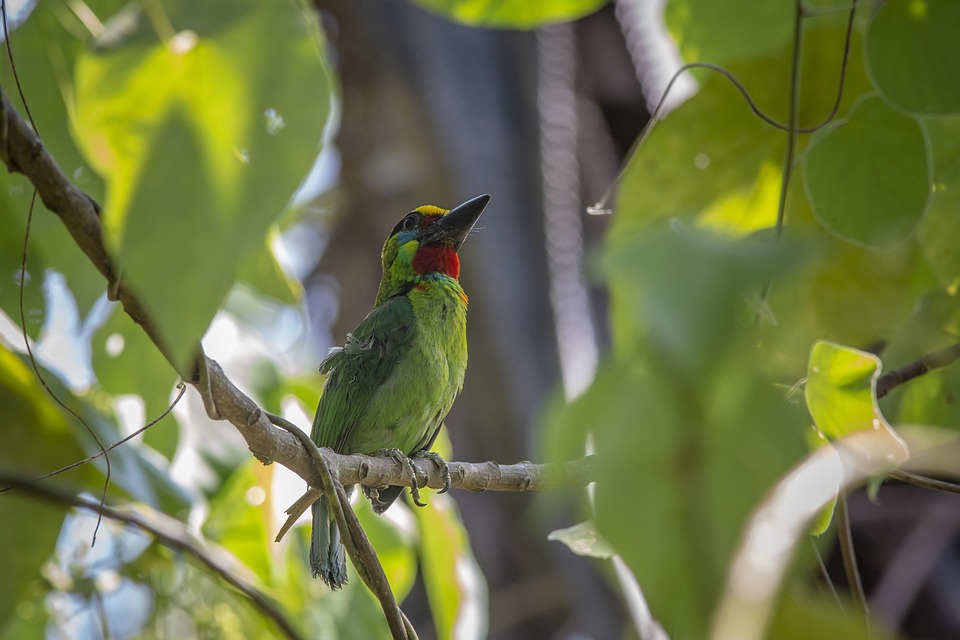Parrots are highly social and intelligent birds that are known for their ability to mimic human speech and engage in interactive behaviors. However, some parrots may develop a habit of excessive begging, which can be bothersome and disruptive. This behavior often stems from a desire for attention, food, or simply out of habit. Fortunately, there are effective strategies to discourage parrots from engaging in excessive begging behavior.
Understanding the Causes of Excessive Begging Behavior
Before addressing excessive begging behavior, it is important to understand the underlying causes. Parrots may beg for various reasons, including:
1. Attention-seeking: Parrots are highly social creatures and crave interaction with their human companions. Begging behavior is often a way for them to get attention and engage in social interaction.
2. Food reinforcement: Parrots are opportunistic eaters and may beg for treats or food rewards. If a parrot has learned that begging leads to receiving food, it will continue to display this behavior.
3. Boredom: Parrots are intelligent creatures that require mental stimulation. If a parrot is bored or lacks environmental enrichment, it may resort to begging as a form of entertainment.
4. Habitual behavior: Some parrots develop begging behavior out of habit, even if their needs are being met. This can be challenging to address but can be modified with consistent training.
Strategies to Discourage Excessive Begging Behavior
1. Ignore begging behavior: One of the most effective ways to discourage begging is to ignore it. Giving in to a begging parrot reinforces the behavior and encourages it to continue. Instead, redirect your parrot’s attention to a different activity or object.
2. Reward alternative behaviors: When your parrot engages in desirable behaviors, such as playing with toys or preening, provide positive reinforcement with praise and treats. This will help shift their focus away from begging and towards more appropriate activities.
3. Establish a consistent routine: Parrots thrive on routine. Create a daily schedule that includes designated feeding times. By sticking to a consistent routine, your parrot will become less reliant on begging for food.
4. Offer mental stimulation: Engage your parrot in mentally stimulating activities, such as puzzle toys or foraging games. This will keep them entertained and satisfied, reducing the likelihood of excessive begging behavior.
5. Use positive reinforcement training: Teach your parrot alternative behaviors, such as stepping up on command or performing tricks, using positive reinforcement training techniques. By redirecting their behavior, you can help them understand that begging is not the desired response for attention or treats.
FAQs:
1. Q: Is it okay to give in to my parrot’s begging behavior occasionally?
A: Giving in to begging behavior occasionally can reinforce the behavior, making it more difficult to discourage in the long run. It is best to establish consistent boundaries and redirect your parrot’s attention to more appropriate activities.
2. Q: My parrot constantly begs for food, even though it has a balanced diet. What should I do?
A: If your parrot’s nutritional needs are being met, excessive begging for food may be a result of learned behavior or boredom. Ensure your parrot has plenty of toys, mental stimulation, and a consistent routine to discourage excessive begging.
3. Q: Can excessive begging behavior be modified in older parrots?
A: Yes, while modifying learned behavior in older parrots may require more time and patience, it is possible. Consistent training, positive reinforcement, and providing mental stimulation can help discourage excessive begging even in older parrots.
4. Q: My parrot’s begging behavior becomes aggressive at times. What should I do?
A: If your parrot’s begging behavior escalates to aggression, it is important to seek professional help from a qualified avian behaviorist. They can assess the root cause of the aggression and provide guidance on managing and modifying the behavior safely.
Remember, addressing excessive begging behavior requires patience, consistency, and understanding. By implementing these strategies and providing a stimulating environment, you can help your parrot develop healthier behaviors and foster a strong bond with your feathered friend.









